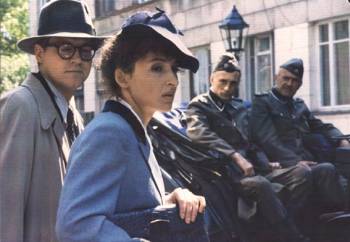 | ||||||||||
Wielki Tydzien [The Holy Week]
 fot: Renata Pajchel |
Rewievs
(...) In his story about the Holy Week 1943 Andrzejewski achieved an effect of tragic irony: Malecki and his family act in the best of faith, according to the ideals of civic duty, patriotism and honour. They do everything a good Pole should. But face to face with the Holocaust this "everything" turns out to be nothing. The world of traditional values is crushed by a strange, bloody order... (...)
Today, when discussing responsibility for the Holocaust, there are people who make facile charges against the Poles accusing them of collective guilt or collaboration, while others, equally easily, acquit the nation as a whole, setting the Shoah against the huge number of Polish victims. But there is a different way to view the tragedy of Shoah - enacted with devilish perfidy before the eyes of a helpless society, reduced to the role of mute witnesses - than from the perspective of national responsibility; and that is by taking a disillusioned view of human nature, based on the Christian notion of guilt. Andrzejewski's story, the first literary text created after the annihilation of the Warsaw ghetto, was an attempt to confront the moral void which appeared in the collective mind of Poles...
The film by Andrzej Wajda [is] an almost literal adaptation of the story.
The Malecki family represents the best qualities of Polish patriotic intelligentsia: Jan's brother with a group of scouts goes forth to help the ghetto (it is shocking that the only attempt to help is made by children); his pregnant wife, all of whose siblings were killed during the fights and in concentration camps, takes care of Irena; and Malecki dies, trying to find her a better hiding place.
Irena - disillusioned, ungrateful, careless, simply begs disaster. The acting of Beata Fudalej underscores IrenaÆs unpleasant traits, making us feel excruciating pity half mixed with irritation. Thus we are able to discern in ourselves the shameful reaction of people for whom Irena was "trouble" - a challenge calling for a sacrifice which nobody could meet. Which û even if met - could only be made in vain.
Tadeusz Sobolewski,
"Kino", X/95
Oscar | Films | Theatre | Why Japan?
Favourites | Pictures gallery | About Wajda | Bibliography
Main Page | Search | Wersja polska
Copyright © 2000 Proszynski i S-ka SA. All rights reserved